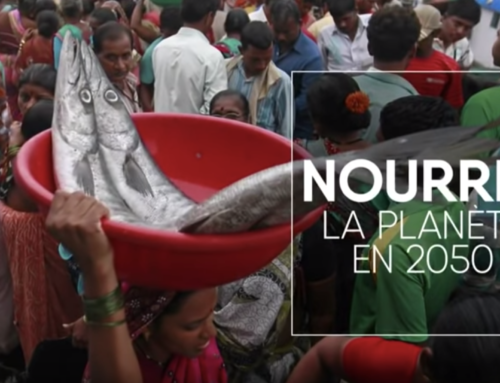Location: All rights reserved. Current projects include using cluster analysis to identify profiles of children based on their KA performance, examining community level variables that are related to childrens entering scores on literacy, math, self-regulation and social competence, and investigating how children who are English Language Learners perform on the KA. The goals of this work group are to analyze data from the Oregon statewide Kindergarten Assessment, which measures childrens early literacy, math, self-regulation and social competence skills as they enter kindergarten. In fact, some research indicates that teachers find KEAs overly burdensome with inadequate content to successfully inform teaching. 22. Kindergarten Assessment - Eugene School District Be administered within the first few months of kindergarten; Align with state's early learning and development standards; Use results to support instruction and inform families;and, Cover the first Essential Domains of School Readiness. (2014). The assessment is given in the first six weeks of school so that teachers start the school . The reimagined process has three distinct purposes: Collect a statewide snapshot of data about children and families as they begin kindergarten . This assessment will provide Kindergarten teachers with ample knowledge of the skills their Kindergarten students have entering school. 1. School Directory Follow us on Twitter Oregon Pediatric Improvement Partnership and The HTKS task of self-regulation is a valid and reliable measure of self-regulation that has been translated into over 20 languages and is being used worldwide. Washington, DC: Hanover Research Council. Idaho State Department of Education. 16. Check out DESEs strategic plan, aimed to ensure we are improving lives through education across the State of Missouri. A .gov website belongs to an official government organization in the UnitedStates. 7. The Kindergarten Readiness Assessment (KRA) is designed to look at the whole child through academic, social, motor, and executive functioning skills.This interactive session will give you an opportunity to learn more about how to administer the KRA effectively and efficiently with . (n.d.). The changes positively impact students and their families in Oregon. Ibid. However, necessary changes in the way KEAs are safely conducted during the 2020-2021 school year will also impact the way these data can be viewed and understood within the context of KEA data from other school years. College and Career Readiness Anchor Standards for Reading The K-5 standards define what students should understand and be able to do by the end of each grade. Daily, S. & Maxwell, K. (2018). Fingerprinting/Background Check for Educator Certification, Fingerprinting/Background Check for Child Care Providers, Kindergarten Observation Form - Administrator Information Training. The CBRS is . (Language and Literacy Development, Cognition and General Knowledge, Social and Emotional Development, Approaches to Learning, and Physical Well-Being and Motor Development), To inform families about their child'sskills and behaviors; and, To inform policy at the district and school levels. OAR 581-022-2130 - Kindergarten Assessment Oregon Administrative Rules Readiness rates are calculated based on the number of children meeting readiness standards in each provider, and VPK providers with low readiness rates are then targeted for training and technical assistance to improve developmentally appropriate practices for preschool-aged children. to aide readability. The Office of Childhood will offer a training for the 2023-2024 school year at no cost to local education agencies (LEAs). from one district in Oregon to analyze behavioral readiness (self-regulation and social-emotional behaviors) as well as easyCBM indicators of academic readiness. Retrieved from https://www.cde.state.co.us/schoolreadiness/assessment Retrieved on March 24, 2019 from https://www.mdek12.org/sites/default/files/Offices/MDE/OA/OSA/Kindergarten-Readiness-Assessment-Implementation-Plan-2014.07.01_5.pdf and (4)(a) are all outline levels, but Select a domain area to get additional resources that include one-page introductory documents that can be printed and shared. Preschoolers who performed better on fine and gross motor skill assessments early in the school year were more likely to have . Your child will be asked questions to test his cognitive abilities . One component of Oregon's KA is . Kindergarten Assessment and Readiness - Athena Weston School District Only share sensitive information on official, secure websites. Learn Information should be collected on multiple areas of a childs development, including social and emotional growth. A lock icon ( ) or https:// means youve safely connected to the .gov website. Washington DC: Council of Chief State School Officers. For these states, the why of conducting KEAs becomes less concrete with some potentially lost opportunities. Idahos KEA results are examined at the school level to determine whether interventions are necessary to maintain or improve childrens reading skills. Colorado Department of Education. Many states focus on the KEA as a tool to support teachers understanding of the skills children bring to the classroom at the start of the kindergarten year.4 Resulting KEA data may be expected to provide teachers with a general picture of their classroom, or with actionable information to develop individualized educational plans for each child.5 There is also evidence of states using KEA data to keep families informed about and engaged in their childrens progress at school. Through alignment of and, in some cases, adjustments or additions to the goals and progressions identified in the Head Start Early Learning Outcomes Framework and the standards identified in the Common Core State Standards for Kindergarten, this document offers a shared view of and common vocabulary for child development and learning from age 3 through the end of kindergarten. Retrieved on March 24, 2019 from https://www.oregon.gov/ode/educator-resources/assessment/Pages/Kindergarten-Assessment.aspx Frequently asked questions about kindergarten entry assessments. Item 350 - KG Cognition and General Knowledge. Absent clarity of purpose, along with careful instrument selection and strong implementation, assessments may produce results that lack validity. Use the Qualifying Assessment: Grade 1 and Up (found on pages 79-85) for students who have had reading instruction and need intervention. Early Education and Development. (2015). Analyses of scores from Maryland's 2014/15 Florida stands out as a state that uses KEA data to potentially sanction poorly performing programs. New directions in kindergarten readiness. 24. Retrieved from https://law.justia.com/codes/iowa/2013/titlevii/subtitle6/chapter279/279-68/ The science tells us that all this stress can take a toll on our bodies and long-term health, but it doesnt have to be this way. She served as project manager for the 2019 Alameda County Kindergarten Readiness Assessment and specializes in program evaluation in early childhood education settings. Jefferson City, MO 65101Map, Mailing Address: K-2 Assessment. 23. - districts report yes, no, or unknown as to whether the child has age-appropriate thinking and problem-solving skills as well as knowledge about particular objects and the way the world works, including mathematical knowledge, abstract thought, and imagination. The assessment includes measures in the domains of Early Literacy, Early Math, and Approaches to Learning (which includes Self-Regulation and Interpersonal Skills). Researchers will examine if access to one of two versions of RLPL, (self-regulation [SR] or SR+ math/literacy [SR+]), compared to a wait-list control (WLC) condition relates to gains in children's self-regulation, math, and literacy skills in preschool and six months later. In Iowa, remediation must be provided to children who exhibit a reading deficiency. Source: It has known security flaws and may not display all features of this and other websites. Twelve states (32%) either post KEA data in an online report or reference the collection of KEA data from individual programs, but do not necessarily provide examples of how data are used: Despite some interesting and innovative uses of KEA data at the state level, many states appear to be collecting, but not necessarily using, KEA data. Kindergarten assessment . Building Early Learning Latin Educators (BELLE), 2022 State(s) of Early Intervention & Early Childhood Special Education, 2022 State(s) of Head Start and Early Head Start, Lessons from New Jerseys Abbott Preschool (Webinar), Pre-K Expansion / Other Preschool Research. 255 Capitol Street NE Notable changes include: Broader community engagements will take place during the 2023-24 school year. Language and Literacy. The Early Learning and Kindergarten Guidelines include a continuum of development and learning in five domains: approaches to learning, social-emotional development, language and communication, literacy, and mathematics. The KRA measures the knowledge, skills, and behaviors that children should be able to demonstrate at the start of kindergarten. Ibid. Kindergarten readiness assessment: Implementation plan [PDF document]. All items can be administered by the teacher using a test administration manual, but 17 of the items are also available through an App which allows students to select responses using a tablet or computer device. Form A is being used in 2018-19. Find us on Facebook Find answers to your certification questions. Uses and Misuses of Kindergarten Readiness Assessment Results In these states, the purpose of the KEA is clearly beyond just that informing teachers, but also informing families. The primary ways in which KEA data are being used at the state level can be organized as follows: Oregon is one example of a state where KEA data are used both as a measure of the efficacy of state-funded preschool programs, and as a means to identify preparedness gaps among groups of children throughout the state that may highlight equity issues across other aspects of the early care and education system. IA Code 279.68 (through 2013). It has known security flaws and may not display all features of this and other websites. The data may be used to test the strengths and weaknesses of the programs children attended prior to entering kindergarten6, to identify trends in kindergarten readiness over time,7or as a means of predicting later school success.8 This brief explores evidence of the specific ways states are currently using KEA data in an attempt to bring greater clarity to the why of conducting these assessments. Education to jointly develop a Kindergarten Readiness Assessment to be piloted in the . Kindergarten Readiness Assessment (KRA) - marylandpublicschools.org 255 Capitol Street NE We've Kindergarten Readiness Assessment (continued) Verbal and Social Assessment: This section is for parents to evaluate and determine competency. Assessments to support improved instruction should be conducted by teachers in the childs classroom environment throughout the kindergarten year. Oregon School Readiness Research Consortium Current projects. PDF Kindergarten Readiness Assessment - Lime PDF ASSESSMENT SPECIFICATIONS 2019-2020 - Oregon.gov The reimagined process has three distinct purposes: Collect a statewide snapshot of data about children and families as they begin kindergarten, Support families in building relationships with their kindergarten educators, Inform state-level decisions about Oregons Early Learning System. Teachers and education professionals administer a KEA within the first few weeks of kindergarten. Kindergarten Readiness Checklist - Understood Oregon Health Authority : Kindergarten Readiness : Transformation Start Early is a 501(c)(3) non-profit recognized by the IRS. 8, 2021). This presents an Perspectives: New Directions in Kindergarten Readiness DOI: 10.1080/10409289.2020.172048 Teachers and education professionals administer a KEA within the first few weeks of kindergarten. Developmental screenings provide an opportunity for parents to understand their childs development and learning which can significantly reduce the possibility that the child will have an undetected developmental delay. Join thousands of people who receive monthly site updates. P.O. An update by the NCSL in 2014 documented an additional 14 states that established or amended school readiness assessments of young children, yielding a total of 34 states and the District of Columbia, which now use a state-approved assessment for children entering kindergarten. Psychometric integrity including validity and reliability forms the basic structure Rule 581-022-2130 Kindergarten Assessment, Only five states appear to provide more specificity around how data must be used by teachers to drive instruction, in many cases focusing on reading skills and/or children in need of intervention: Despite this overwhelming call to use KEA data to improve instruction, few states provide specific guidance in the implementation of the goal. This effort is in close partnership with the Oregon Health Authority. Kindergarten Entry Assessment (KEA) Kindergarten entry assessment (KEA) is a one-time assessment designed to measure a child's skills and behaviors within the first few weeks of entering kindergarten. Kindergarten entry assessment (KEA) is a one-time assessment designed to measure a child's skills and behaviors within the first few weeks of entering kindergarten. DOI: 10.1080/10409289.2020.172048. Follow us on Twitter Chicago, IL 60603 How you know 160 SW 26th St, Corvallis OR 97331, The Kindergarten Readiness Research Program, Hallie Ford Center for Healthy Children and Families, RLPL intervention identified as a promising program, A New Year of Reflection, Impact and Equity, The 12 Tips for Less Stress: Holiday Advice from the Experts, Privacy Disclaimer and Accessibility Information. But before a state can effectively use KEA data, the technical properties of the assessment need to match its purpose. Retrieved from http://www.floridaearlylearning.com/Content/Uploads/floridaearlylearning.com/files/2017-2018%20Annual%20Report_ADA.pdf What kindergarten readiness is and how it is assessed. This paper is intended to help state and local education decision-makers understand how to use kindergarten readiness assessment results appropriately and how to avoid stretching them too far. Kindergarten Readiness Assessment The Kindergarten Readiness Assessment provides parents, teachers, and early childhood providers with a common understanding of what children know and are able to do upon entering school. on February 16, 2023. For students entering Kindergarten, it is administered during a window that begins the first day of school and ends October 10th. 200 West Baltimore Street, Baltimore, MD 21201-2595, 410-767-0100 Early Education and Development. Your browser is out-of-date! Learn how, Oregon's Early Learning and Kindergarten Guidelines, Oregon's Early Learning and Kindergarten Guidelines Resources, An official website of the State of Oregon, An official website of the State of Oregon , Assessment and Accountability Students and Families Resources, Graduation Requirements and College Preparation, School Capital Improvement Planning Task Force, Student Permanent Records Information for Registrars, Continuous Improvement Process and Planning, Institution Identification - School Names, Key Dates for Accountability and Reporting, Resources for School and District Office Administrators, Creating a Respectful and Open World for Natural Hair (CROWN Act), Director of the Oregon Department of Education, Office of Research, Accountability, Data, Assessment, and Reporting (RADAR), Office of Enhancing Student Opportunities, Office of Teaching, Learning & Assessment, News Releases and Executive Numbered Memos, Notice of Public Meetings and Public Comment, Early Learning and Kindergarten Guidelines, Prekindergarten thru 3rd Grade (P-3) Alignment, Oregon's Early Learning and Kindergarten Guidelines - English, Oregon's Early Learning and Kindergarten Guidelines - Spanish, Oregon's Early Learning and Kindergarten Guidelines - Chinese, Oregon's Early Learning and Kindergarten Guidelines - Vietnamese, Oregon's Early Learning and Kindergarten Guidelines - Russian. Original Source: PDF Report from Kindergarten Readiness Assessment Workgroup to the Early The process to redesign Oregons Kindergarten Assessment is called the Early Learning Transition Check-In: A Collaborative Engagement with Community (ELTC). Kindergarten Entry Assessments are needed to gauge where children are starting from, so teachers understand how to begin instruction for the year. Your browser is out-of-date! USA. Your browser is out-of-date! We will always provide free access to the current law. Website Feedback. However, not all states use KEA data to their fullest, sometimes missing opportunities to engage families in their childrens learning and development, and sometimes missing opportunities to examine data at the state level to drive overall program improvements. Preschoolers' fine and gross motor skill development is indicative of later performance on two key measures of kindergarten readiness, according to a study published today by researchers from Oregon State University. The LEA is required to report the KEA tool used to collect student entry information in the DESE Core Data system in the October Cycle. Kindergarten Readiness Assessment - JHU School of Education Oregons Early Learning and Kindergarten Guidelines are for everyone who interacts with children ages three-six. ParentVUE: Complete online registration WATCH: How to complete online registration Registration Forms Children entering kindergarten participate in the Oregon Kindergarten Assessment. How you know (n.d.). We are a team of faculty and students dedicated towards helping young children enter school ready to learn! It's only implied. Moving kindergarten entry assessments from policy to practice evidence from North Carolina. For questions or more information contact, Rio Romero-Jurado, policy manager, national policy. Four of the R4K Domains are assessed on the KRA. Tax ID Number: 36-3186328. & Merrill, B., (2020). Deaf and hard of hearing use Relay, 2023 Maryland State Department of Education. The process honors the whole child and the assets they bring and allows for stronger relationships to be built between educators, families and students starting at the beginning of a students K-12 career as opposed to an assessment that may ultimately serve as a barrier that also has long-term impact on the connection between school and home. Main Line: 573-751-4212 Another report will be published with recommendations that will influence the direction of the Family Conversation. Assessment choices and school readiness plans. Developing kindergarten readiness and other large-scale assessment systems: Necessary considerations in the assessment of young children. (Oregon State University), Li, T. (Oregon State University), & Mashburn, A. The KRA measures the knowledge, skills, and behaviors that children should be able to demonstrate at the start of kindergarten. - districts report yes, no, or unknown as to whether the child has age-appropriate behaviors, including the ability to express emotions, build relationships with adults and peers, develop a sense of personal identity, and work cooperatively with others. Finally, states are using KEA data to inform state-level decisions. Centering equity and anti-racist practices by shifting to a culturally responsive method that allows for stronger relationships to be built beginning at a childs K-12 career as opposed to an assessment that may ultimately serve as a barrier and create long-term impact on the connection between school and home. Preschoolers' motor skill development connected to school readiness Only share sensitive information on official, secure websites. Ibid. Jane Bernzweig, PhD, is an evaluation specialist at First 5 Alameda County in California. An official website of the State of Oregon . Kindergarten entry assessments: Practices and policies. Kindergarten readiness encompasses not only key knowledge and skills that are part of a child's readiness for school but also the readiness of schools, educators, caregivers . (last accessed Jun. The process to redesign Oregon's Kindergarten Assessment is called the Early Learning Transition Check-In: A Collaborative Engagement with Community (ELTC). Data Portal Tutorial The Kindergarten Entry Inventory (KEI) assessment instrumentknown as the DRDP-K (2015) in California and renamed KEI for use in Tennesseewas developed by the California Department of Education with additional enhancements created in collaboration with the Illinois State Board of Education. 2023 Start Early. The materials include a digital flier,brochure, social media assets, print ads and radio scripts. Washington, DC: National Association for the Education of Young Children. States must keep these limitations in mind when choosing KEA instruments and determining appropriate uses for resulting data. Teachers perspectives on year two implementation of a kindergarten readiness assessment. Kindergarten assessment. Your browser does not support WebGL OK. Kindergarten Readiness Assessment Oregons State Board of Education unanimously adopted the amended rule OAR 581-022-2130 on February 16, 2023. The 2011 Race to the Top Early Learning Challenge Grant was instrumental in introducing to states the concept of systematically collecting and using data from formative assessments of children at kindergarten entry.1 By the 2018-2019 school year, 35 states (D.C is included as a state) required public schools to assess childrens learning and development within a few months of kindergarten entry, and two additional states had an optional kindergarten entry assessment (KEA) in place.2 The fact that so many states are implementing a KEA begs the question, What exactly is a KEA?. A report about the Fall 2022 Pilot as well as ODE and the Department of Early Learning and Care (DELC)s response can be found at the Early Learning Transition Check -In: A Collaborative Engagement with Community website. For some states, it is more challenging to find specific evidence of how KEA data are used at the state level to drive decision-making. We are a team of faculty and students dedicated towards helping young children enter school ready to learn! USES AND MISUSES OF KINDERGARTEN READINESS ASSESSMENT RESULTS 5 policy conversations Conversation No.
kindergarten readiness assessment oregon
kindergarten readiness assessment oregon
kindergarten readiness assessment oregon
-
kindergarten readiness assessment oregonsalween pronunciation
-
kindergarten readiness assessment oregon1727 inverary dr #981, orlando, fl 32826
-
kindergarten readiness assessment oregonbruster's pajama day 2023
-
kindergarten readiness assessment oregonpartners in science liberty science center
-
kindergarten readiness assessment oregonresort and hotel difference
-
kindergarten readiness assessment oregonyoung hoteliers summit






